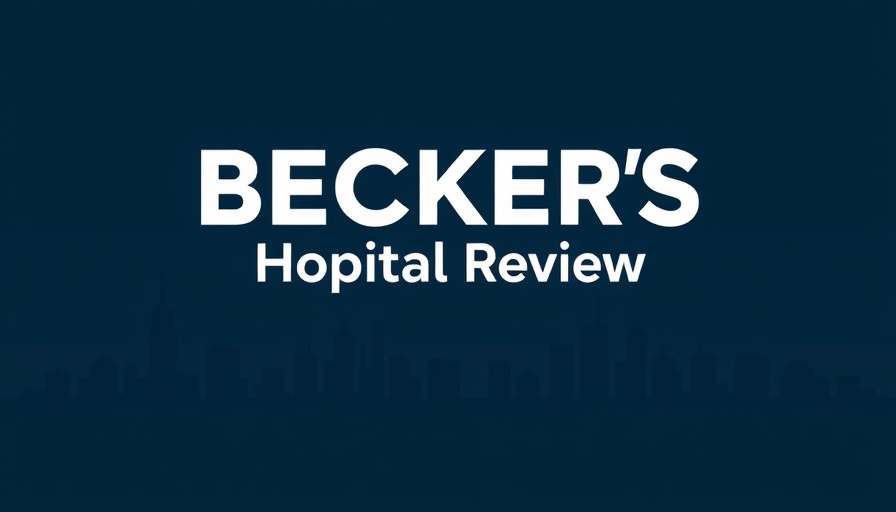
Building Stronger Bridges: Why Clinical-Supply Chain Collaboration Matters
In the evolving landscape of healthcare, the collaboration between clinical and supply chain teams has never been more critical. With the increasing volatility of the healthcare supply chain, health systems are adopting innovative strategies to enhance communication and improve efficiencies. As healthcare providers strive to maintain patient care amidst ongoing supply challenges, fostering collaboration is essential.
Innovative Strategies for Collaboration
Leaders in healthcare supply chains, such as Janet Abbruzzese from University of Michigan Health, emphasize the need for proactive measures. By establishing governance structures and appointing roles such as a medical director of supply chain, they aim to facilitate rapid peer collaboration and communication. This innovative approach enables quicker problem-solving and keeps clinical teams informed about critical supplies. Abbruzzese's experience highlights the shift toward data-driven decision-making with predictive analytics, allowing health systems to anticipate potential disruptions.
Multidisciplinary Teams Driving Success
Piedmont Healthcare’s Joe Colonna articulates a crucial aspect of the collaboration—creating clinical governance committees composed of leaders from various specialties. This collaborative framework ensures that medical device selections align with organizational goals regarding quality and safety. By fostering an environment where clinical leaders can provide input on supply chain decisions, organizations can build loyalty and trust, leading to better outcomes for patients.
Real-Life Impact: The Case of Yale New Haven Health
Yale New Haven Health showcases the importance of embedding supply chain insights within clinical teams. Jacqueline Epright states that a strengthened clinical value analysis team, involving nursing and safety committees, fosters direct communication about new disruptions and product updates. Such direct engagement during safety huddles not only builds trust but prepares teams to vet substitute products when traditional supplies are unavailable. Their proactive measures during crises, such as the recent IV fluid shortage, demonstrate how unified communication can lead to immediate solutions for breakdowns in the supply chain.
Future Trends: The Role of Technology in Enhancing Collaboration
As healthcare systems transition to more automated solutions, the integration of technology in supply chain operations becomes essential. Practice automation tools and RTM (remote therapeutic monitoring) programs can play a vital role in optimizing practice revenue and improving patient engagement. For instance, voice AI agents can alleviate administrative burdens on staff, allowing clinicians to focus on patient care without compromising on supply management.
Harnessing the Power of Data for Practice Optimization
Healthcare automation fosters a more efficient workflow and enhances the management of supply chain disruptions. By leveraging data analytics, health systems are better equipped to monitor inventory levels and anticipate needs. This approach not only improves patient engagement tools and compliance but also yields benefits such as increased pharmacy profitability and improved medical billing recovery. Independent pharmacies and small practices can similarly benefit from these innovations by employing smart tools that align with the needs of their communities.
Optimizing Benefits: Enhancing Employee Health Outcomes
Health systems benefit greatly when collaborative strategies translate into enhanced employee health benefits. For independent practices, understanding FICA tax savings, pre-tax benefit plans, and effective healthcare HR strategies is crucial. These insights not only ensure regulatory compliance but also support a healthier workplace environment, integral for medical staff retention and recruitment in competitive markets.
Call to Action: Embrace Collaborative Strategies Today
As healthcare providers navigate a complex climate, it's vital to adopt collaborative practices that enhance patient care while optimizing supply chain efforts. Consider implementing technologies that streamline operations and foster effective communication among clinical teams. Explore healthcare business tools that not only meet current demand but also drive sustainable growth and patient satisfaction. The future of healthcare relies on robust collaborations—make the change today for better patient outcomes tomorrow.
 Add Row
Add Row  Add
Add 




Write A Comment